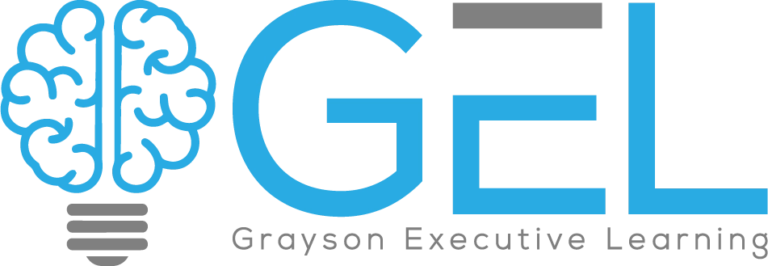Living with Attention Deficit Hyperactivity Disorder (ADHD) can present unique challenges in everyday life. People with ADHD struggle in managing daily tasks and responsibilities. From the struggle to resist distractions and impulse control to failure to practice active listening and being able to complete tasks, individuals often find themselves grappling with various attention deficit disorder symptoms that can impact their productivity and overall well-being. Discovering effective ADHD coping skills can significantly improve daily functioning and overall well-being.
The impact on daily life cannot be understated. Students are left feeling frustrated as they try and fail to deal with hyperactivity symptoms. They may fall behind in their schoolwork or struggle with missed deadlines. Adult ADHD sufferers who haven’t learned the right techniques to manage symptoms don’t fare any better. From the conference room to grocery shopping, they may experience increased stress levels.
However, with the right coping skills and strategies, it’s possible to navigate through these challenges and thrive. In this article, we’ll explore five essential coping skills tailored specifically to address common ADHD symptoms, empowering you to take control of your life and achieve success.
ADHD Coping Skill #1: Eliminating Distractions
One of the most prevalent struggles for individuals with Attention Deficit Hyperactivity Disorder is managing distractions. Whether it’s the allure of social media, the temptation of unfinished tasks, or external noises, distractions can derail focus and productivity. To combat this, it’s crucial to create an environment conducive to concentration.
Remember, ADHD minds work a bit differently. Knowing this is the key to unlocking your potential. So, exercise a little self-compassion and consider if these coping strategies may help.
Designate a specific workspace free from clutter and noise. Eliminating unnecessary items by keeping them out of sight will help to minimize distractions and promote focused thought. Impulse control can be learned with practice.
Use noise-canceling headphones or background music to drown out distractions. Staying focused may not be possible with simple willpower. So, seek assistance from what you have available. Keeping track of what methods you’ve tried in a journal is also helpful so you know what works for you.
Implement digital tools. Assistive technologiessuch as website blockers may limit access to distracting websites during work or study sessions. ADHD means that you may have to force time management with a little “tough love”. There’s nothing wrong with that! But also build in an outlet for physical activity and short periods of downtime.
By proactively eliminating distractions, students and adults with ADHD can create a conducive environment that fosters concentration and productivity.
ADHD Coping Skill #2: Prioritize Tasks
Individuals with ADHD often struggle with prioritizing tasks and managing their time effectively. The tendency to become overwhelmed by multiple responsibilities can lead to procrastination, feelings of being constantly behind, and higher stress levels. To address this challenge, it’s essential to develop effective executive functioning skills like prioritization techniques.
Create a daily or weekly to-do list. Rank tasks based on urgency and importance. One method is to use visual aids like color-coded calendars or task boards to stay organized. Discover a good filing system so that notes and materials stay organized too.
Break tasks down into smaller, actionable steps. This can make them more manageable. It can help combat a short attention span by moving on to other steps before losing focus.
Set realistic goals and deadlines. This will keep you from feeling overwhelmed by unrealistic expectations.
By organizing tasks, learning time management skills, and focusing on one task at a time, individuals with Attention Deficit Hyperactivity Disorder can simplify their life and achieve more.
ADHD Coping Skill #3: Practice Mindfulness
Mindfulness techniques can be invaluable for individuals with an ADHD diagnosis in managing impulsivity, regulating emotions, and improving overall focus. Mindfulness involves paying deliberate attention to the present moment without judgment. Incorporating mindfulness practices into daily routines can help individuals with ADHD.
Pause and reflect before acting. Mindfulness should include meditation. Improve emotional regulation by acknowledging and accepting emotions without reacting impulsively. Many adults find that they enhance focus and concentration through relaxation techniques such as deep breathing exercises or guided meditation.
Cultivate self-awareness. Tune into thoughts, feelings, and bodily sensations. Ask yourself: “Why am I feeling this?”
By practicing mindfulness regularly, individuals with ADHD can develop greater self-control and stay focused on important tasks without getting derailed.
ADHD Coping Skill #4: Attend to Your Overall Well-Being
Taking care of your physical and mental well-being is crucial for managing ADHD symptoms effectively. Managing adult ADHD should be part of your whole-health care approach.
Exercise regularly. Exercising regularly has been shown to improve focus, mood, and overall cognitive function. Physical activity helps address the unique challenges that come with ADHD like excess energy.
Maintain a balanced diet. Choose foods rich in nutrients such as omega-3 fatty acids, which are beneficial for brain health. Pick a healthy protein for meals and plenty of veggies for a balanced diet. Avoid sugar when possible.
Ensure an adequate amount of quality sleep. Sleep deprivation can worsen ADHD symptoms. Try to fall asleep at the same time each night to find a regular sleep-wake schedule.
Engaging in stress-reducing activities. Yoga, tai chi, or hobbies that promote relaxation and enjoyment will let you use relaxation techniques that appeal to your interests to reach a better mental state.
By prioritizing self-care and addressing underlying physical and emotional needs, individuals with ADHD can better manage their symptoms and improve their quality of life.
ADHD Coping Skill #5: Seek Community and Professional Support
Living with ADHD can feel isolating at times, but it’s essential to remember that you’re not alone. Seeking support from peers, family members, or mental health professionals can provide invaluable guidance and encouragement.
Find support groups. Consider joining support groups or online communities specifically for individuals with ADHD to connect with others who understand your experiences. Many support groups and health organizations maintain a regular ADHD newsletter to provide ongoing support tips.
Seek professional help. Working with a qualified executive functioning coach or therapist can offer personalized strategies and support tailored to your unique needs.
Building ADHD Coping Skills Leads to Your Success
Living with ADHD presents its own set of challenges, but by implementing effective coping skills and strategies, individuals can overcome obstacles and thrive in their personal and professional lives.
From eliminating distractions and prioritizing tasks to practicing mindfulness and attending to overall well-being, there are various tools available to support individuals with ADHD on their journey towards success.
Remember, progress may take time, but with patience, perseverance, and support, managing ADHD can become more manageable, allowing you to unleash your full potential.




